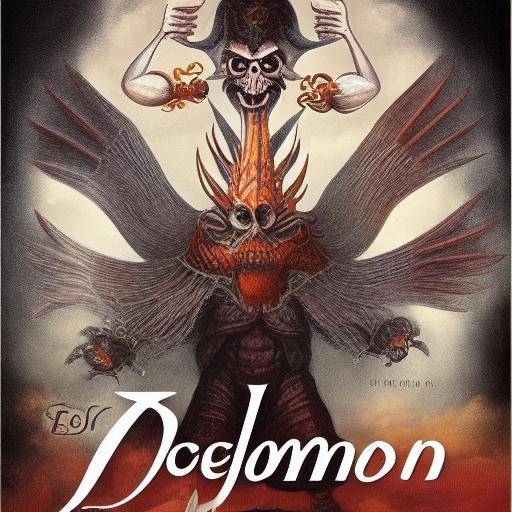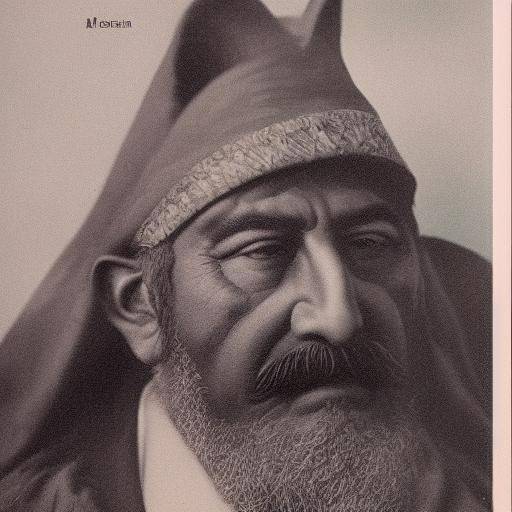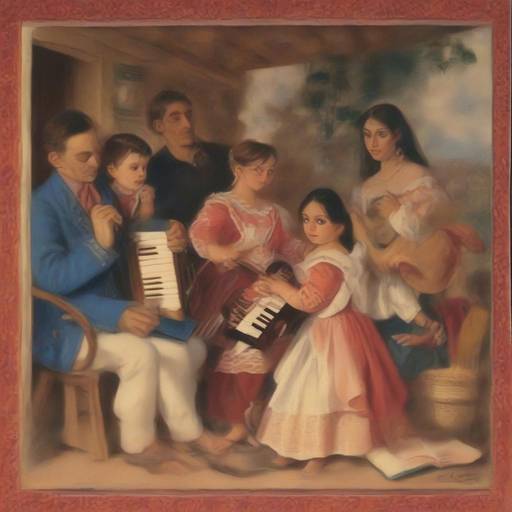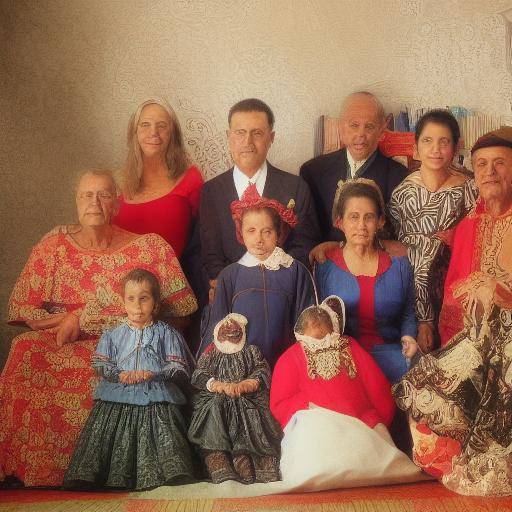
Introduction
In the sugar mills of Argentina, there is a dark and mysterious figure that has disturbed workers and inhabitants of the nearby towns for generations. This being, known as "The Family", inspires fear and respect for equal parts, and its presence has been the subject of numerous legends and popular accounts. In this article, we will explore in depth who is El Familiar, his supposed pact with the devil, his influence on Argentine culture and the contemporary perspective on this enigmatic entity.
History and Origins of El Familiar
The family myth has deep roots in the Argentine folklore, specifically in the regions where the sugar mills are found. It is believed that this figure dates back to colonial times, when the sugar industry began to flourish in the country. The peasants who worked in the sugarcane fields told stories about a mysterious being who sneered at night, lurking the workers and taking with them those who dared to challenge him.
The stories about The Family varied in detail, but they agreed that this being possessed supernatural abilities and that it maintained a covenant with the devil to protect the interests of the sugar mills in exchange for souls. These stories were popularized, and over time, The Family became a feared and respected figure to the same extent, whose presence was considered a curse for those who crossed their way.
Detailed Analysis of the Family Myth
Despite its origin in folklore and popular superstitions, the myth of El Familiar has endured over the centuries and has influenced Argentine culture and society in unexpected ways. Even in the modern era, the figure of El Familiar continues to exert its influence in the communities where the sugar mills are located, generating respect and fear among the locals.
The stories about El Familiar offer a fascinating window to the collective psyche of the Argentinian rural communities, revealing deep-rooted fears, but also the ability of the folk narrative to reflect and process social and economic tensions. Through the fear of this supernatural being, communities express their concerns about the nature of labour exploitation in sugar mills and the human consequences of industrial activity.
Family in Argentina Culture and its Legendary Covenant
The presence of El Familiar in Argentinian culture is undeniable, and its alleged pact with the devil has inspired numerous literary works, films and artistic manifestations. From classical literature to contemporary cinema, The Family has been represented as a symbol of the struggle between good and evil, between oppressed workers and the powerful interests that exploit them.
This cultural influence extends beyond the creative arts, reaching to permeate the collective consciousness and the Argentine national identity. The figure of El Familiar embodies the fundamental conflicts and tensions in society, providing a vehicle to understand the complexities of the country's contemporary history and reality.
Contemporary Perspectives on The Family
Despite its roots in the popular tradition, the myth of El Familiar has generated debates and research in the contemporary era. Anthropologists, historians and sociologists have carefully examined the roots of the myth, seeking to understand its role in society and its relevance to the understanding of the Argentine identity.
This analysis has also revealed the complexity of labour and economic relations in sugar mills, as well as the tensions between tradition and modernity in a constantly changing society. The myth of El Familiar, far from being a simple superstition, is revealed as a prism through which fundamental aspects of life can be observed and understood in Argentina.
Conclusion and Frequently Asked Questions
Conclusion
In conclusion, El Familiar, with his enigmatic presence and his supposed pact with the devil, has occupied a prominent place in the Argentine folklore, offering a unique window to the collective psyche and the country's social tensions. Its influence extends beyond popular legends, affecting the culture, art and understanding of Argentine national identity. Through the study of this myth, we can obtain valuable insights into Argentina's history, labour relations and contemporary complexities.
Frequently asked questions
1. What is the origin of the myth of El Familiar?
The myth of El Familiar has its roots in the rural communities of Argentina, specifically in the regions where the sugar mills are found. It dates back to colonial times and has endured over the centuries, influencing Argentine culture and society.
2. What role has El Familiar played in Argentine literature and art?
The myth of El Familiar has inspired numerous literary works, films and artistic manifestations, becoming a symbol of the struggle between good and evil, and as a vehicle to understand the complexities of Argentina's contemporary history and reality.
3. What relevance does El Familiar have in the contemporary context?
In the contemporary era, the myth of El Familiar has generated debates and research, highlighting the complexity of labour relations, the tensions between tradition and modernity, and its role as a prism to understand fundamental aspects of life in Argentina.
4. What is the impact of El Familiar in the communities where the sugar mills are located?
The impact of El Familiar is manifested in the cultural influence, collective awareness and national identity of Argentina, providing a unique understanding of the collective psyche and the social tensions of the country.
5. What is the contemporary interpretation of the supposed covenant of The Family with the devil?
The contemporary interpretation of El Familiar's supposed pact with the devil has generated debates and research on labor and economic relations in sugar mills, as well as tensions between tradition and modernity in a society in constant change.
6. How has El Familiar influenced the understanding of Argentine national identity?
The Family has influenced the understanding of Argentine national identity, providing a vehicle to understand fundamental aspects of life in Argentina, such as labour relations, social tensions and contemporary complexities in the country.
In short, The Family represents much more than a simple figure of folklore; it is a prism through which we can understand and reflect on the complex Argentine reality. Its influence encompasses culture, national identity and the understanding of fundamental tensions in society. The study of this myth provides a valuable perspective on the history and culture of Argentina.
It concludes here our journey through the myth of El Familiar in the sugar mills of Argentina.











